
Marie Curie’s notebooks containing her scientific research, which are Radioactive and must be
Marie Curie's Notebooks By Doctor Y — January 3, 2022 Marie Curie died of aplastic anemia, a disease brought on, in her case, by exposure to a large amount of radiation from both her laboratory work and from her work running field x-ray machines during the First World War.

Pictured is, Marie Curie's experimental notebook. Even after a hundred years it is still
Marie Curie's notebooks. Marie Curie's Notebooks. Marie Curie died of aplastic anemia, a disease brought on, in her case, by exposure to a large amount of radiation from both her laboratory work and from her work running field x-ray machines during the First World War. There was no surprise there, given the little known about radiation and.

marie curie notebook shown Her work with polonium and radium was revolutionary, but exposed
2 min read · Jul 4, 2020 Credit: Wellcome Collection. Attribution 4.0 International (CC BY 4.0) 86 years have passed since two times Nobel Prize winner Marie Skłodowska Curie left us. This July.
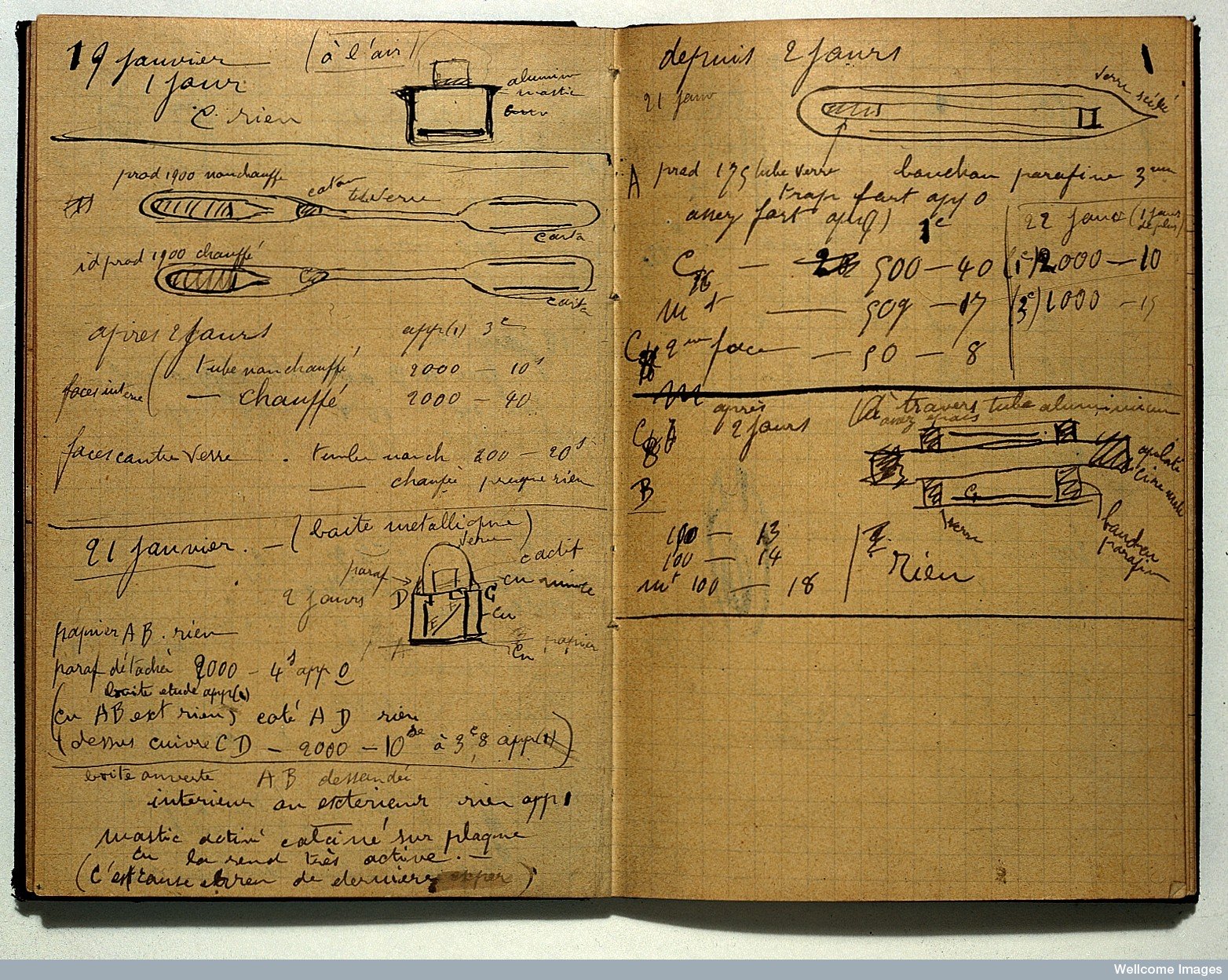
Noting the Notebook Education Reimagined Education Reimagined
The notebooks of Marie Curie are still so radioactive that they cannot be handled. Marie Curie's health was declining seriously by the end of the 1920s. Cataracts contributed to failing vision. Marie Curie retired to a sanatorium, with her daughter Eve as her companion. She died of pernicious anemia, also most likely an effect of the.
Take a peek at Marie Curie's notebook from 18991902, containing notes from experiments on
Transcript Narrator (VO): "Did you know that Marie Curie's notebooks are still radioactive to this day?"Narrator (VO): "Curie is famous for her groundbreakin.

Did you know? Marie Curie’s notebooks are still radioactive New Scientist
Amanda Macias/Business Insider This article was originally published by Business Insider. Marie Curie, known as the 'mother of modern physics', died from aplastic anaemia, a rare condition linked to high levels of exposure to her famed discoveries, the radioactive elements polonium and radium.
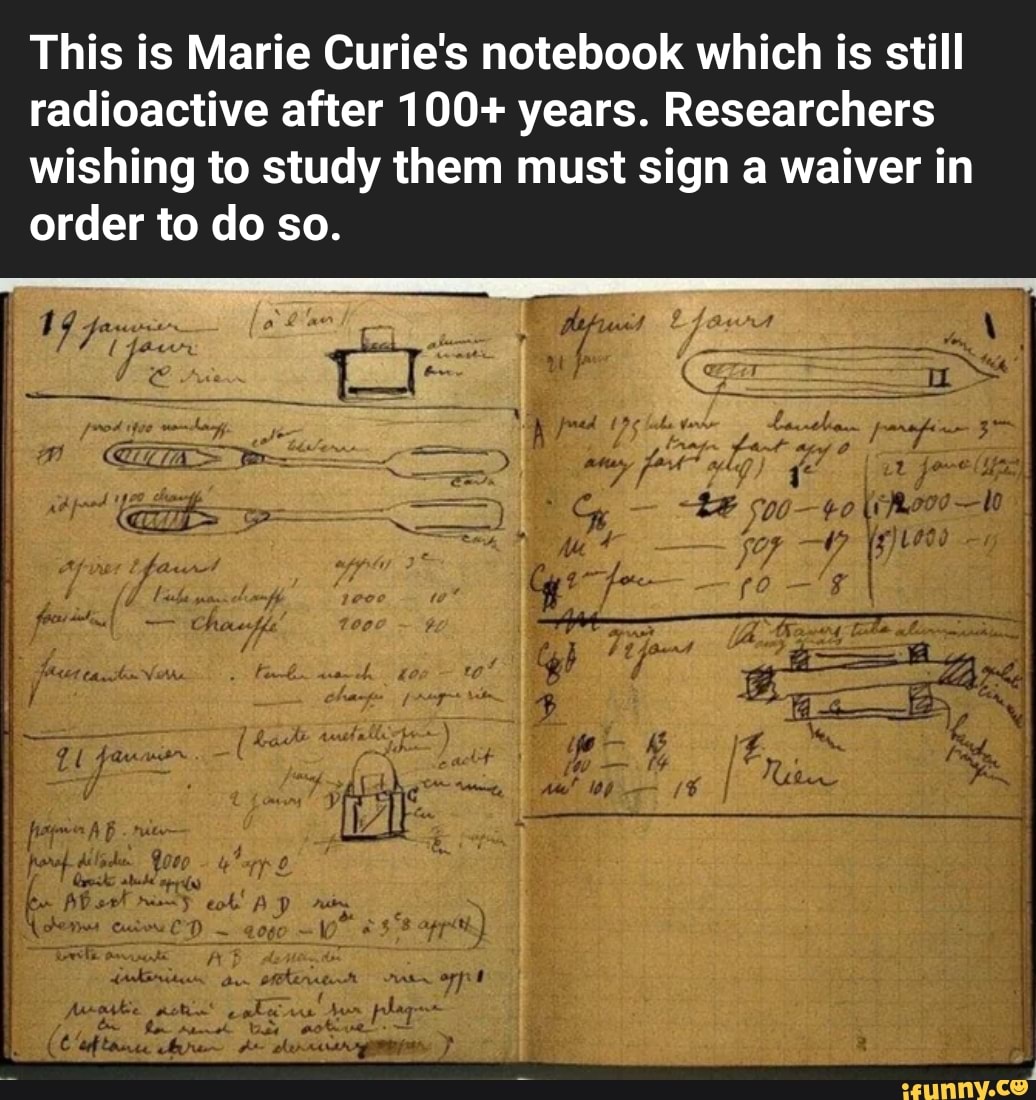
This is Marie Curie's notebook which is still radioactive after 100+ years. Researchers wishing
Subscribe to our YouTube channel for free here:https://www.youtube.com/c/OddMinute?sub_confirmation=1After more than 100 years, much of Marie Curie's persona.
TIL not only was Marie Curie the first woman to win the Nobel Prize in physics and chemistry
Marie Curie kept vials of materials in her pockets and desk drawers. Astonishingly, more than a century later, her notebooks are still too radioactive to be handled without protective clothing.

Take a peek at Marie Curie's notebook from 18991902, containing notes from experiments on
Her notebooks are radioactive. Marie Curie died in 1934 of aplastic anemia (likely due to so much radiation exposure from her work with radium). Marie's notebooks are still today stored in lead.

"Marie Curie" Spiral Notebook for Sale by neuroticowl Redbubble
5 Feb 2019 — 1 min read A look inside a notebook, on experiments from 1899-1902, still radioactive today (and will be 1500 years from today). This reminds me that paper notebooks are still the best format for archiving notes, and handwriting adds humanity to everything — including data collection. (via The Nobel Prize and NinjaEconomics)
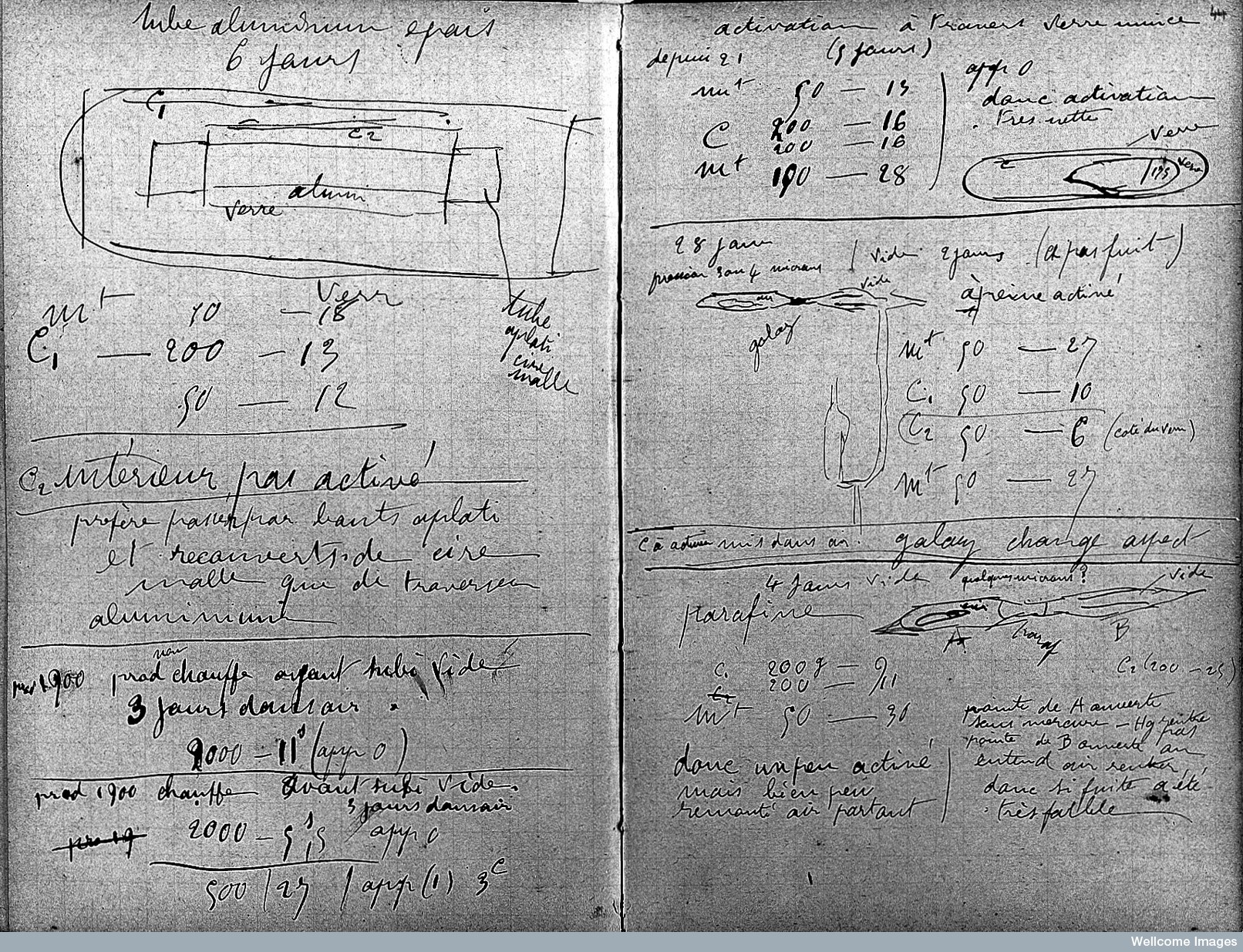
Marie Curie's belongings will be radioactive for another 1,500 years
Marie Curie, whom Google is celebrating Monday with a Google Doodle in honor of her 144th birthday, lived her life awash in ionizing radiation. More than a century later, her papers are still.

"Marie Curie" Spiral Notebook by EdgarCurious Redbubble
by Mady Updated March 31, 2022. Marie Curie was an absolutely impressive woman and a scientist who opened new horizons in the field of chemistry, physics as well as in biology, and medicine. She is famously known for inventing the term 'radioactivity' after discovering the two elements called polonium (Po) and radium (Ra).
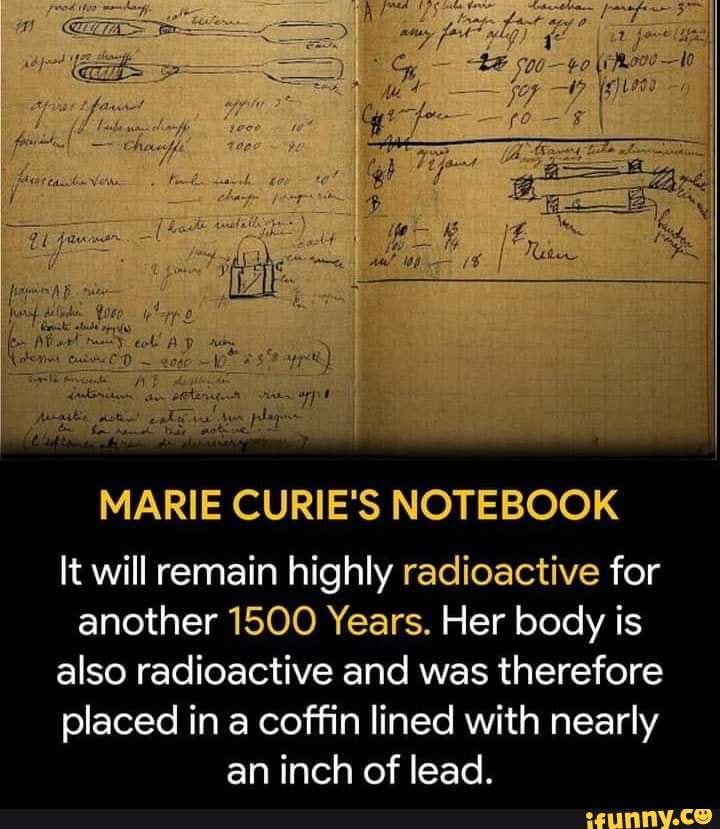
MARIE CURIE'S NOTEBOOK It will remain highly radioactive for another 1500 Years. Her body is
The Curies Discover Radium On December 20th, 1898, Pierre Curie scrawled the word 'radium' in his notebook as the name for a new element he and his wife Marie had discovered in their laboratory in Paris. Richard Cavendish | Published in History Today Volume 48 Issue 12 December 1998

Marie Curie's lab notebook Used courtesy of the Creative Commons Public... Download Scientific
Marie Curie was the first woman to win a Nobel Prize (1903), the only woman to win it again (1911), the first woman to become a professor at the University of Paris, and the first woman to be entombed (on her own merits) at the Panthéon in Paris.

Marie Curie's Notebook still Radioactive
Published August 4, 2014 Comments ( 31) Marie Curie made some of the most significant contributions to science in the 20th century. And as most people already know, she did so at a great cost to.

Marie Curie's Notebook
Marie Curie is likely the most famous female scientist, and arguably one of the most notable scientific names of any gender. Her work earned her the Nobel Prize in both physics (1903) and chemistry (1911). The Polish-born genius made France her adopted home, where she and her husband Pierre experimented with radioactive elements such as uranium.